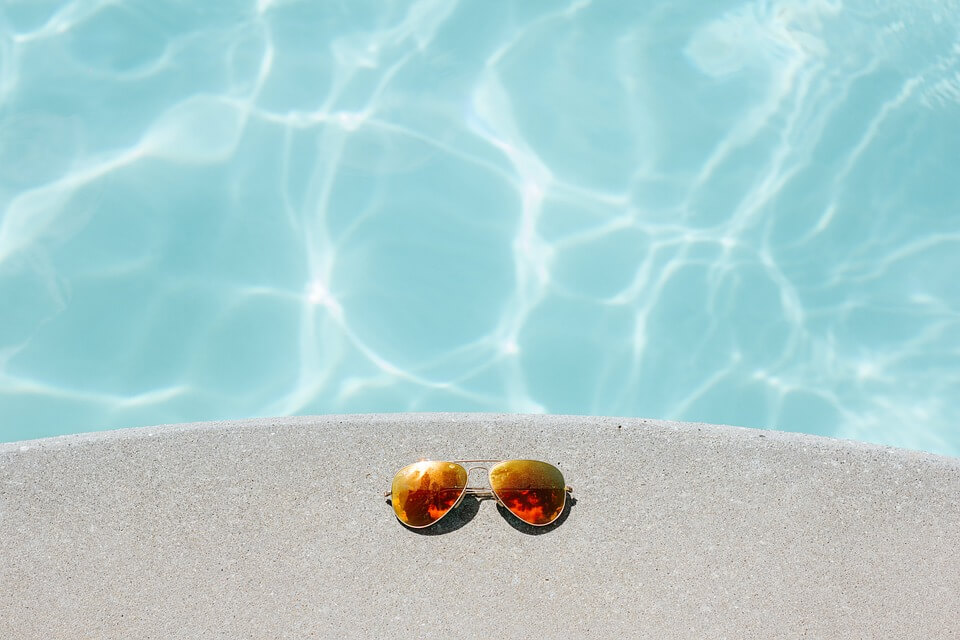
Swimming Pool
Summer is the perfect time to take a dip in the pool and cool off from the heat. However, with frequent use, pools can quickly become dirty and unsanitary. Keeping your pool clean during the summer is essential for ensuring a safe and enjoyable swimming experience. In this article, we will discuss ways to keep your pool clean during the summer, including the use of a pool cleaner.
1. Use a Pool Cleaner
While regular maintenance is essential for keeping your pool clean, using a pool cleaner can make the process much easier. A pool cleaner is a device that uses suction or pressure to remove dirt, debris, and other contaminants from the pool. There are several types of pool cleaners, including robotic, suction-side, and pressure-side cleaners. Each type of pool cleaner has its advantages and disadvantages, so it’s important to choose the one that best suits your needs and budget.
Robotic pool cleaners are the most efficient type of pool cleaners. They use their power source and don’t rely on your pool’s filtration system. They are also more expensive than other types of pool cleaners. Suction-side pool cleaners attach to your pool’s skimmer and use the suction from the pool’s pump to move around and clean the pool. They are more affordable than robotic pool cleaners but may not be as effective. Pressure-side pool cleaners are powered by the pressure from your pool’s pump and use a separate bag to collect debris. Also, they cost more than other kinds of pool cleaners. Using a pool cleaner can save you time and effort in keeping your pool clean. It can also help to prolong the life of your pool’s filtration system by reducing the amount of debris that it needs to handle.
2. Skim the Surface of the Pool Regularly
One of the easiest and most effective ways to keep your pool clean during the summer is to skim the surface regularly. Leaves, insects, and other debris can quickly accumulate on the surface of the pool, making it look unsightly and uninviting. Using a skimmer net, you can easily remove these contaminants from the surface of the water, making your pool more inviting to swim in.
3. Clean the Pool Filter
One of the easiest ways to keep your pool clean during the summer is to clean your pool filter regularly. You should check it once a week and clean it once every two weeks, depending on how much use your pool gets. A dirty pool filter can clog up and cause your pump to work harder than normal, which will increase energy costs.
Your pool filter plays a crucial role in keeping your pool water clean and clear. Over time, the filter can become clogged with debris, reducing its effectiveness. It’s important to clean your pool filter regularly, especially during the summer months when the pool is in frequent use. The type of filter you have will determine the cleaning process, so it’s important to follow the manufacturer’s instructions. If you want to make sure that your filter is working as well as it can, here are some things you can do:
First, check the water pressure. If your filter isn’t getting enough water pressure, it won’t be able to do its job and keep your pool clean. You can test this by turning off all faucets and running the pump for a few minutes. Then turn on the faucets and see if you get a strong flow of water through your filters.
Second, clean out any debris that has collected in or around your filters. This includes leaves and other plant matter from trees near your pool and dirt from lawns around it. If there’s too much debris in there, it could clog up your filter or even damage it permanently.
4. Add Chlorine to the Pool
Chlorine is a powerful disinfectant that can kill bacteria, viruses, and other harmful contaminants in the pool. Adding chlorine to the pool regularly is essential for keeping the water clean and safe for swimming. The amount of chlorine you need to add to your pool will depend on the size of your pool and how often it is used.
The first step is getting a chlorine test kit from a local pool store or online retailer. This will tell you how much chlorine is in your pool at any given time so that you can make sure it stays at an optimal level for safety and cleanliness. The recommended amount of chlorine for pools varies depending on their size and other factors such as how often they’re used or how well they’re maintained. If you don’t have one already, then take some time this week to find out what that number should be or consult with a pool professional or use a pool testing kit to determine the correct amount of chlorine to add.
5. Test and Balance the Water Chemistry
Maintaining proper water chemistry is crucial for keeping your pool clean and safe for swimming. You should test the water chemistry of your pool at least once a week during the summer months. The pH level, alkalinity, and chlorine levels are the most important factors to monitor. If any of these levels are off, it can lead to cloudy or green water, which can be unappealing and even harmful to swim in.
In addition to testing the water chemistry, it’s important to balance the levels if they are off. Adding chemicals such as pH increaser, pH reducer, alkalinity increaser, and calcium hardness increaser can help.
Conclusion
By taking the time to properly maintain your pool, you can ensure that it remains a safe and enjoyable place to swim throughout the summer. Whether you choose to hire a professional pool cleaner or take care of it yourself, the effort you put into maintaining your pool will be well worth it when you can relax and cool off in crystal-clear water on a hot summer day.






